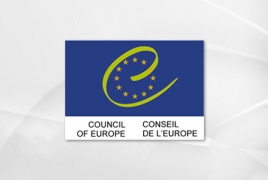
The European Commission against Racism and Intolerance (ECRI) on Tuesday, September 10 published conclusions on the implementation of priority recommendations made to Armenia in 2016.
Each country report by ECRI contains recommendations for which priority follow-up is requested. Two years after the publication of each report, ECRI asks the Government concerned what has been done to implement these priority recommendations and draws up its conclusions.
In its 2016 report on Armenia, ECRI recommended that the authorities bring their criminal law into line with ECRI’s General Policy Recommendation No. 7; ECRI concludes that this has not been implemented as, for example, the list of “prohibited grounds” in the new draft Criminal Code does not contain all those proposed by ECRI. Besides, the adoption of the new Criminal Code is currently only planned for 2020.
ECRI’s General Policy Recommendation No.7 sets out the key elements which should feature in a comprehensive national legislation to effectively combat racism and racial discrimination. The scope of the Recommendation is very wide and covers all branches of the law: constitutional, criminal, civil and administrative. It addresses not only direct and indirect discrimination, but also other legal aspects of the fight against racism, including racist expressions, racists organisations and racially-motivated offences.
ECRI also recommended that the various action plans for the integration of vulnerable groups include a description of their objectives, a complete set of criteria for assessing the impact on those groups, and a clear financial plan. This has been partially implemented.
The European Commission against Racism and Intolerance (ECRI) is a human rights monitoring body which specialises in questions relating to the fight against racism, discrimination (on grounds of “race”, ethnic/national origin, colour, citizenship, religion, language, sexual orientation and gender identity), xenophobia, antisemitism and intolerance; it prepares reports and issues recommendations to member States.

